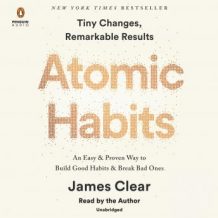Upstream: The Quest to Solve Problems Before They Happen Audiobook
Upstream: The Quest to Solve Problems Before They Happen Audiobook
- Dan Heath
- Simon & Schuster Audio
- 2020-03-03
- 7 h 0 min
Summary:
New York Occasions bestselling author Dan Heath explores how to prevent problems before they happen, sketching on insights from a huge selection of interviews with unconventional problem solvers.
Frequently in existence, we get trapped in a routine of response. We put out fires. We cope with emergencies. We stay downstream, managing one issue after another, but we hardly ever make our way upstream to fix the systems that caused the issues. Cops run after robbers, doctors treat patients with persistent illnesses, and call- about Upstream: The Goal to Solve Complications Before They Happen center reps address customer complaints. But many crimes, chronic health problems, and customer problems are preventable. So why do our initiatives skew so intensely toward reaction instead of prevention?
Upstream probes the psychological causes that drive us downstream—including “issue blindness,” that may leave us oblivious to serious complications inside our midst. And Heath presents us towards the thinkers who have overcome these obstacles and scored massive victories by switching for an upstream way of thinking. One on-line travel website avoided twenty million customer support calls each year by causing some basic tweaks to its reserving system. A significant urban school district cut its dropout rate in two after it figured out that it might predict which college students would drop out—as soon as the ninth grade. A European nation almost eliminated teenage alcohol and drug abuse by deliberately changing the nation’s lifestyle. And one EMS program accelerated the emergency-response period of its ambulances through the use of data to anticipate where 911 calls would emerge—and forward-deploying its ambulances to stand by in those areas.
Upstream delivers practical solutions for preventing complications instead of reacting to them. How many problems inside our lives and in society are we tolerating due to the fact we’ve forgotten that people can fix them?




